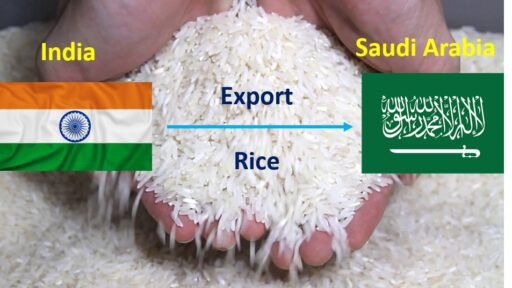Introduction to Importing in Saudi Arabia
As one of the largest economies in the Middle East, Saudi Arabia is a significant import market with a growing demand for a wide range of goods and services. Imports play a crucial role in supporting the country’s economic diversification efforts and meeting the needs of its population and industries.
Saudi Arabia’s import regulations and processes are designed to facilitate trade while ensuring compliance with national security, public health, and environmental standards. The government has implemented various measures to streamline import procedures and enhance the overall business environment for importers.
The Kingdom’s strategic location, well-developed infrastructure, and access to regional markets make it an attractive gateway for international trade. However, importers must navigate a complex regulatory landscape and adhere to specific requirements to successfully bring goods into the country.
This comprehensive guide aims to provide an in-depth understanding of the import process in Saudi Arabia, covering essential aspects such as documentation, customs procedures, product standards, and compliance measures. By understanding the intricacies of importing to Saudi Arabia, businesses can effectively navigate the market, mitigate risks, and capitalize on the opportunities presented by this dynamic economy.
Import Requirements and Documentation
To import goods into Saudi Arabia, importers must comply with a set of requirements and provide the necessary documentation. The main documents required for importation include:
- Commercial Invoice: This document provides details about the goods being imported, such as description, quantity, value, and origin.
- Bill of Lading or Airway Bill: This serves as proof of the contract between the shipper and the carrier for the transportation of goods.
- Certificate of Origin: This document certifies the country of origin of the imported goods and is required for customs clearance and preferential tariff treatment under free trade agreements.
- Packing List: This document lists the contents of each package or container, including the quantity, weight, and dimensions.
- Import License or Permit: Certain products may require specific import licenses or permits from the relevant Saudi authorities, such as the Ministry of Commerce and Investment or the Saudi Food and Drug Authority (SFDA).
In addition to these general documents, there may be additional requirements depending on the nature of the imported goods. For example, food products may require health certificates, while certain industrial products may require conformity certificates or test reports.
Furthermore, Saudi Arabia has specific product labeling and marking requirements that importers must comply with. Labels must be in Arabic and may also include English text. Information such as product name, ingredients, manufacturer details, and expiration dates must be clearly displayed on the packaging.
It’s important to note that import requirements and documentation may change over time, and it’s advisable to consult with customs brokers, freight forwarders, or relevant government agencies for the most up-to-date information and guidance.
Customs Procedures and Duties
Customs clearance is a crucial step in the import process to Saudi Arabia. Upon arrival of goods at the port or border, importers or their appointed customs brokers must submit the required documentation, including the commercial invoice, bill of lading, certificate of origin, and any other relevant documents specified by Saudi Customs.
The customs clearance process typically involves the following steps:
- Submission of Documents: The importer or customs broker submits the necessary documents to the Saudi Customs Authority.
- Goods Inspection: Customs officials may conduct a physical inspection of the goods to verify the accuracy of the declared information and ensure compliance with regulations.
- Duty and Tax Calculation: Import duties and taxes are calculated based on the Harmonized System (HS) code, value, origin, and quantity of the goods.
- Payment of Duties and Taxes: The importer or customs broker must pay the applicable duties and taxes before the goods can be released.
- Goods Release: Once all requirements are met and payments are made, the goods are released for delivery to the importer’s designated location.
Import duties in Saudi Arabia are typically calculated based on the CIF (Cost, Insurance, and Freight) value of the goods. The applicable duty rates vary depending on the product category and origin of the goods. Saudi Arabia follows the Gulf Cooperation Council (GCC) Common External Tariff, with duty rates ranging from 0% to 25% for most products.
In addition to import duties, importers may also be required to pay other taxes and fees, such as:
- Value-Added Tax (VAT): A standard 15% VAT is applied to most goods and services in Saudi Arabia.
- Excise Tax: Certain products, such as tobacco, energy drinks, and carbonated beverages, are subject to an excise tax.
- Customs Handling Fees: Fees charged by the Customs Authority for processing and clearing the goods.
It’s important to note that certain items are prohibited or restricted from import into Saudi Arabia. Prohibited items may include weapons, narcotics, pornographic materials, and goods that violate Islamic principles or pose a threat to national security. Restricted items may require special permits or approvals from relevant authorities before import.
Importers are advised to consult with customs brokers or professionals to ensure compliance with all customs procedures, accurate calculation of duties and taxes, and proper handling of prohibited or restricted items.
Product Standards and Compliance
When importing goods into Saudi Arabia, it is essential to ensure that your products comply with the relevant mandatory standards and certification requirements. These standards and certifications vary depending on the product category and are enforced by various government agencies and regulatory bodies.
For food products, the Saudi Food and Drug Authority (SFDA) is responsible for setting and enforcing food safety standards. All imported food items must meet the SFDA’s requirements, which include labeling regulations, halal certification, and compliance with specific product standards based on the type of food item.
For non-food consumer products, such as electrical appliances, toys, and cosmetics, the Saudi Standards, Metrology, and Quality Organization (SASO) sets mandatory standards and certification requirements. Products must obtain the necessary SASO certifications and bear the SASO quality mark before they can be imported and sold in the Saudi market.
In the case of chemical products, including industrial chemicals, pesticides, and fertilizers, the Ministry of Environment, Water, and Agriculture (MEWA) enforces strict regulations and standards to ensure environmental and public safety.
Importers must also comply with labeling and packaging norms set by the relevant authorities. These norms typically require product labels to be in Arabic and include specific information such as product name, manufacturer details, ingredients, and usage instructions.
It is crucial for importers to thoroughly research and understand the applicable product standards and certification requirements before attempting to import goods into Saudi Arabia. Failure to comply with these regulations can result in shipments being detained, fines, or even the rejection of goods at the border.
Importers and Customs Brokers
Importers and customs brokers play a crucial role in facilitating international trade and navigating the complexities of import regulations in Saudi Arabia. These professionals serve as intermediaries between businesses and government authorities, ensuring compliance with customs procedures and streamlining the import process.
Role of Importers and Customs Brokers
Importers are responsible for purchasing goods from foreign suppliers and arranging for their transportation to Saudi Arabia. They handle the entire import process, including obtaining necessary permits, paying duties and taxes, and ensuring that the imported products meet all regulatory requirements.
Customs brokers, on the other hand, are licensed professionals who specialize in customs clearance procedures. They act as agents for importers, preparing and submitting required documentation, calculating duties and taxes, and representing importers during inspections and clearance processes.
Benefits of Using Importers and Customs Brokers
Engaging the services of importers and customs brokers offers several advantages to businesses:
- Compliance Expertise: Importers and customs brokers have in-depth knowledge of Saudi Arabia’s import regulations, tariff schedules, and trade agreements. They ensure that all documentation is accurate and complete, minimizing the risk of delays, penalties, or confiscation of goods.
- Time and Cost Savings: By outsourcing the import process to professionals, businesses can save time and resources that would otherwise be spent navigating complex customs procedures. Importers and customs brokers can expedite clearance processes, reducing potential storage fees and delays.
- Risk Management: Importers and customs brokers can help businesses mitigate risks associated with international trade, such as currency fluctuations, transportation issues, and regulatory changes. They provide guidance and advice to ensure smooth and compliant import operations.
- Access to Trade Networks: Experienced importers and customs brokers often have established relationships with freight forwarders, carriers, and government agencies, facilitating efficient import logistics and clearance processes.
Licensing Requirements
In Saudi Arabia, customs brokers must obtain a license from the Saudi Customs Authority to operate legally. The licensing process involves meeting specific requirements, such as educational qualifications, professional experience, and passing relevant examinations. Importers may also need to obtain various permits and licenses depending on the nature of the goods they intend to import.
By leveraging the expertise of importers and customs brokers, businesses can streamline their import operations, ensure compliance with regulations, and focus on their core activities while minimizing risks and delays.
Free Trade Agreements and Preferential Treatment
Saudi Arabia has signed several free trade agreements (FTAs) with various countries and regional blocs, which can provide preferential treatment for imported goods in terms of reduced or eliminated tariffs. These agreements aim to facilitate trade, promote economic cooperation, and create opportunities for businesses and consumers.
One of the most significant FTAs for Saudi Arabia is the Greater Arab Free Trade Area (GAFTA), which includes 17 Arab countries. Under this agreement, goods originating from GAFTA member states enjoy duty-free access to the Saudi market, subject to meeting the rules of origin requirements.
Saudi Arabia is also a member of the Gulf Cooperation Council (GCC), which has established a customs union among its six member states: Saudi Arabia, United Arab Emirates, Bahrain, Kuwait, Oman, and Qatar. Goods originating from GCC countries can move freely within the union without facing customs duties or non-tariff barriers.
Additionally, Saudi Arabia has signed bilateral FTAs with several countries, including Singapore and the European Free Trade Association (EFTA) states, which include Iceland, Liechtenstein, Norway, and Switzerland. These agreements provide preferential tariff rates and market access for goods originating from the respective countries, subject to meeting the rules of origin criteria.
To benefit from preferential tariff rates under FTAs, importers must provide proof of origin for their goods. This typically involves obtaining a certificate of origin issued by the relevant authorities in the exporting country. The rules of origin vary depending on the specific FTA and may include criteria such as substantial transformation, regional value content, or change in tariff classification.
It’s important for importers to familiarize themselves with the specific provisions and requirements of the applicable FTAs, as well as the rules of origin criteria, to ensure compliance and take advantage of the preferential treatment offered by these agreements.
Temporary Import Regimes
Saudi Arabia offers temporary import regimes that allow for the duty-free importation of goods intended for re-export or temporary use within the country. These regimes are particularly beneficial for businesses participating in exhibitions, trade shows, or requiring equipment for specific projects or services.
The temporary admission regime permits the importation of goods without payment of customs duties or taxes, provided they are re-exported within a specified period, typically six months to one year. Eligible goods include exhibition materials, professional equipment, commercial samples, and goods for repair or processing.
To qualify for temporary admission, importers must submit a formal application, provide a security deposit or bank guarantee, and comply with the prescribed conditions and time limits. Goods must be identifiable upon re-export and cannot undergo any modifications or alterations during their stay in Saudi Arabia, except for routine maintenance or repairs.
Another temporary import regime is the temporary importation for inward processing, which allows for the importation of goods for manufacturing, processing, or repair operations within Saudi Arabia. The processed or repaired goods must then be re-exported within a specified timeframe. This regime is beneficial for companies outsourcing certain production steps or seeking specialized repair services.
Importers must maintain detailed records, comply with customs procedures, and ensure the timely re-export of the goods to avoid penalties or seizure. Failure to re-export the goods within the prescribed period may result in the payment of applicable customs duties and taxes, as well as potential fines or sanctions.
It is crucial for businesses to carefully evaluate their eligibility, understand the specific requirements, and work closely with customs authorities or authorized customs brokers to navigate the temporary import regimes successfully.
Intellectual Property Rights Protection
Protecting intellectual property rights (IPR) is crucial when importing goods into Saudi Arabia. The country has established laws and regulations to safeguard various forms of intellectual property, including trademarks, patents, copyrights, and industrial designs.
In Saudi Arabia, trademarks must be registered with the Saudi Authority for Intellectual Property (SAIP) to receive legal protection. The registration process involves filing an application, conducting a comprehensive examination, and publishing the mark for potential opposition. Once registered, trademarks are valid for ten years and can be renewed indefinitely.
Patents are also protected under Saudi Arabian law, and inventors can file patent applications with the SAIP. The patenting process involves a thorough examination to ensure the invention meets the criteria of novelty, inventive step, and industrial applicability. Successful patent registrations grant exclusive rights to the patent holder for a period of 20 years from the filing date.
Enforcing intellectual property rights in Saudi Arabia is overseen by various government agencies, including the SAIP, the Ministry of Commerce and Investment, and the Saudi Customs Authority. These entities collaborate to prevent the importation, distribution, and sale of counterfeit or infringing goods within the country.
Importers can take proactive measures to protect their intellectual property rights by recording their trademarks and patents with Saudi Customs. This step enables customs officials to identify and seize potentially infringing goods at the border, preventing their entry into the Saudi market.
Additionally, Saudi Arabia has established specialized IPR courts and committees to handle disputes and infringement cases. Rights holders can initiate legal proceedings against alleged infringers, seeking remedies such as injunctions, seizure of infringing goods, and compensation for damages.
It is essential for importers to familiarize themselves with Saudi Arabia’s intellectual property laws and regulations, as well as the procedures for registering and enforcing their rights. Seeking professional legal advice and working closely with relevant authorities can help ensure the effective protection of intellectual property when importing goods into the Kingdom.
Import Logistics and Transportation
Saudi Arabia has a well-developed logistics and transportation infrastructure to facilitate import operations. The country has several major ports and airports that serve as entry points for imported goods.
Major Ports:
- King Abdulaziz Port (Dammam): This is Saudi Arabia’s largest and busiest port, handling a significant portion of the country’s imports. It is equipped with modern facilities and can accommodate large container vessels.
- Jeddah Islamic Port: Located on the Red Sea coast, this port is a vital gateway for imports destined for the western region of Saudi Arabia, including the holy cities of Mecca and Medina.
- King Fahd Industrial Port (Yanbu): This port is strategically located on the Red Sea and serves as a hub for imports related to the industrial and petrochemical sectors.
- Jubail Commercial Port: Situated in the eastern province, this port primarily handles imports for the industrial and petrochemical sectors.
Major Airports:
- King Khalid International Airport (Riyadh): The primary airport for air cargo imports into the capital city and surrounding areas.
- King Abdulaziz International Airport (Jeddah): A major air cargo hub for imports destined for the western region of Saudi Arabia.
- King Fahd International Airport (Dammam): Handles a significant portion of air cargo imports for the eastern province.
Transportation Modes and Infrastructure:
Saudi Arabia has an extensive network of highways and roads that connect the major cities and ports. Trucking is the primary mode of inland transportation for imported goods. The country also has a well-developed railway system that is used for the transportation of bulk commodities and industrial goods.
Warehousing and Distribution Facilities:
Saudi Arabia has numerous warehousing and distribution facilities located near major ports and cities. These facilities are equipped with modern infrastructure and technologies to handle and store imported goods efficiently. Many international logistics companies and third-party logistics providers operate in Saudi Arabia, offering comprehensive warehousing and distribution services to importers.
Import Financing and Payment Methods
Securing adequate financing and selecting appropriate payment methods are crucial aspects of importing goods into Saudi Arabia. Common financing options include trade finance facilities from banks, such as letters of credit, import loans, and working capital loans. These instruments help importers manage cash flow and mitigate risks associated with international transactions.
Payment terms and methods play a vital role in facilitating smooth import transactions. Open account terms, where payment is made after receiving the goods, are often preferred by importers but carry higher risks for exporters. Conversely, cash in advance offers the highest level of security for exporters but may be less appealing to importers. Documentary collections and letters of credit strike a balance, providing security for both parties while allowing for flexible payment terms.
Working closely with banks and financial institutions is essential for importers in Saudi Arabia. These institutions can provide valuable guidance on financing options, trade risk management, and compliance with local regulations. Additionally, they can facilitate secure payment transfers, currency conversions, and other financial services necessary for international trade transactions.
It is crucial to carefully evaluate the creditworthiness of trading partners and negotiate favorable payment terms to minimize risks and ensure a smooth import process. Importers should also consider the potential impact of fluctuating exchange rates and explore hedging strategies or forward contracts to manage currency risks effectively.
Import Regulations for Specific Products
Saudi Arabia has specific regulations and requirements for importing certain types of products, particularly those that fall under the category of regulated goods. These regulations are in place to ensure the safety, quality, and compliance of these products with local standards and Islamic principles.
Food Products
Importing food products into Saudi Arabia requires adherence to strict regulations set by the Saudi Food and Drug Authority (SFDA). All food items must be halal and free from pork or pork-derived ingredients. Importers must obtain a halal certificate from an approved Islamic center in the country of origin. Additionally, food products must comply with labeling requirements, including ingredient lists, expiration dates, and nutritional information in Arabic.
Pharmaceuticals and Medical Devices
The importation of pharmaceuticals and medical devices is regulated by the SFDA. Importers must obtain a import license and provide detailed documentation, including product specifications, manufacturing processes, and quality control measures. Clinical trials and product registration may be required for certain pharmaceutical products before they can be imported.
Chemicals and Hazardous Materials
The importation of chemicals and hazardous materials is subject to strict controls and regulations by the Saudi Ministry of Environment, Water, and Agriculture (MEWA). Importers must obtain import permits and provide detailed information on the chemical composition, safety data sheets, and intended use of the products. Certain chemicals may be banned or restricted based on their potential environmental or health risks.
Weapons and Explosives
The import of weapons, ammunition, and explosives is tightly controlled and regulated by the Saudi Ministry of Interior. Importers must obtain specific licenses and permits, and the import of these items is generally limited to authorized government agencies or licensed entities.
Alcoholic Beverages and Pork Products
The importation of alcoholic beverages and pork products is strictly prohibited in Saudi Arabia due to religious and cultural considerations. Attempts to import these items may result in severe penalties and legal consequences.
It is crucial for importers to thoroughly research and understand the specific regulations and requirements for their products before initiating the import process. Failure to comply with these regulations can result in delays, fines, or the seizure of goods at the border.
Import Challenges and Risk Management
Importing goods into Saudi Arabia can present several challenges and risks that importers must navigate carefully. One common challenge is navigating the complex regulatory landscape, which includes stringent product standards, labeling requirements, and documentation procedures. Failure to comply with these regulations can lead to delays, fines, or even the seizure of goods.
Another significant challenge is managing supply chain disruptions and ensuring the timely delivery of goods. Factors such as port congestion, transportation delays, or political instability in the region can disrupt the flow of goods and impact business operations. Importers must have contingency plans in place to mitigate these risks and maintain supply chain resilience.
Cultural differences and language barriers can also pose challenges when conducting business in Saudi Arabia. Importers must be mindful of local customs and etiquette and may need to rely on local partners or cultural advisors to navigate these complexities effectively.
To mitigate these risks, importers should consider the following strategies:
- Compliance Management: Establish robust processes for monitoring and adhering to relevant regulations, product standards, and documentation requirements. Regular training and updates for staff can help ensure compliance and minimize the risk of costly mistakes.
- Supply Chain Diversification: Diversify supply sources and transportation routes to reduce reliance on a single supplier or logistics provider. This can help mitigate the impact of disruptions and ensure continuity of supply.
- Risk Assessment and Contingency Planning: Conduct thorough risk assessments to identify potential vulnerabilities in the supply chain and develop contingency plans to address them. This may include alternative sourcing strategies, inventory management, or emergency response protocols.
- Partnerships and Local Knowledge: Collaborate with local partners, such as customs brokers, legal advisors, or industry associations, to gain insights into the local market and regulatory environment. Their expertise can help navigate challenges and mitigate risks.
- Insurance and Risk Transfer: Explore insurance options or risk transfer mechanisms to protect against financial losses due to supply chain disruptions, cargo damage, or other unforeseen events.
- Technology and Digitalization: Leverage technology and digital solutions to streamline processes, improve visibility, and enhance supply chain resilience. This can include adopting advanced tracking systems, data analytics, or blockchain-based solutions.
By proactively addressing these challenges and implementing risk management strategies, importers can enhance their operational efficiency, minimize disruptions, and maintain a competitive advantage in the Saudi Arabian market.
Import Promotion and Support Initiatives
The Saudi government has implemented various initiatives to facilitate and promote imports into the country. One of the key programs is the Saudi Industrial Development Fund (SIDF), which provides loans and financial support to businesses engaged in importing machinery, equipment, and raw materials for industrial projects. The SIDF aims to diversify the economy and encourage the growth of non-oil sectors.
Additionally, the government has established several free zones and economic cities that offer incentives and streamlined processes for importers. These zones provide tax and customs duty exemptions, simplified procedures, and world-class infrastructure to attract foreign investment and enhance trade facilitation.
The King Abdullah Economic City (KAEC), located on the Red Sea coast, is one of the most prominent economic cities. It offers a strategic location, state-of-the-art logistics facilities, and a business-friendly environment for importers and exporters. The Jeddah Islamic Port, situated within KAEC, serves as a major gateway for imports into the Kingdom.
Another notable free zone is the Dammam Logistics Zone, which is strategically located near the King Abdulaziz Port in Dammam. This zone provides specialized logistics services, warehousing facilities, and streamlined customs procedures to facilitate import and export operations.
Furthermore, the Saudi government has implemented various trade facilitation measures to simplify and expedite import processes. These include the adoption of electronic systems for customs clearance, risk management techniques, and the implementation of the Authorized Economic Operator (AEO) program, which grants accredited companies streamlined customs procedures and reduced inspections.
Overall, these initiatives aim to enhance Saudi Arabia’s competitiveness in the global trade landscape, attract foreign investment, and support the growth of the import sector, contributing to the diversification of the nation’s economy.
Future Trends and Outlook
The import market in Saudi Arabia is expected to experience significant growth in the coming years, driven by several factors. Firstly, the country’s ambitious economic diversification plans under the Vision 2030 initiative are likely to drive demand for imported goods across various sectors, including manufacturing, technology, and infrastructure development.
One of the emerging sectors with promising import opportunities is renewable energy. As Saudi Arabia aims to increase its renewable energy capacity, imports of solar panels, wind turbines, and related equipment are expected to surge. Additionally, the growing focus on localization and domestic manufacturing may lead to increased imports of machinery, raw materials, and intermediate goods.
E-commerce and digitalization are also shaping the future of imports in Saudi Arabia. The rise of online shopping and the increasing adoption of digital technologies are expected to facilitate cross-border trade and streamline import processes. This trend will likely drive imports of consumer goods, electronics, and other products catering to the growing e-commerce market.
Furthermore, the implementation of the Gulf Cooperation Council (GCC) Customs Union and the potential expansion of free trade agreements could open up new opportunities for imports from various countries. This could lead to increased trade flows and diversification of import sources.
However, it is essential to note that import regulations, product standards, and compliance requirements may continue to evolve, necessitating importers to stay updated and adapt their strategies accordingly. Factors such as geopolitical tensions, global economic conditions, and trade policies could also influence import dynamics in the region.
Overall, the future outlook for imports in Saudi Arabia appears promising, with opportunities arising across multiple sectors. Businesses that can effectively navigate the import landscape, leverage digital technologies, and align with the country’s economic diversification goals are likely to benefit from the growing import market.
Resources and Further Information
For those seeking additional guidance and resources on importing to Saudi Arabia, several useful websites, publications, and contacts are available:
Websites:
- Saudi Customs (www.customs.gov.sa) – The official website of the Saudi Customs Authority, providing information on customs regulations, procedures, and online services.
- Saudi Standards, Metrology, and Quality Organization (SASO) (www.saso.gov.sa) – This organization’s website offers details on product standards, technical regulations, and conformity assessment procedures.
- Saudi Ministry of Commerce (www.mc.gov.sa) – The ministry’s website provides information on import/export policies, trade agreements, and commercial regulations.
- Saudi Ports Authority (www.ports.gov.sa) – This website offers information on Saudi ports, shipping services, and logistics.
Publications:
- “Importing into Saudi Arabia” – A comprehensive guide published by the Saudi Customs Authority, covering import procedures, documentation, and regulations.
- “Saudi Arabia Country Commercial Guide” – An annual publication by the U.S. Commercial Service, providing insights into the Saudi market and trade opportunities.
- “Saudi Arabia Trade Brief” – A periodic publication by the World Trade Organization, analyzing Saudi Arabia’s trade policies and practices.
Contacts:
- Saudi Chambers of Commerce and Industry – Local chambers can provide guidance and assistance to importers in their respective regions.
- Saudi Export Development Authority (www.saudi-exports.gov.sa) – This government agency supports and promotes Saudi exports but may also assist importers.
- Foreign embassies and trade offices in Saudi Arabia – Embassies and trade representatives of various countries can provide country-specific information and support to their respective importers.
These resources can offer valuable information, guidance, and support to businesses navigating the import process in Saudi Arabia. It is recommended to consult official sources and seek professional advice when necessary.





